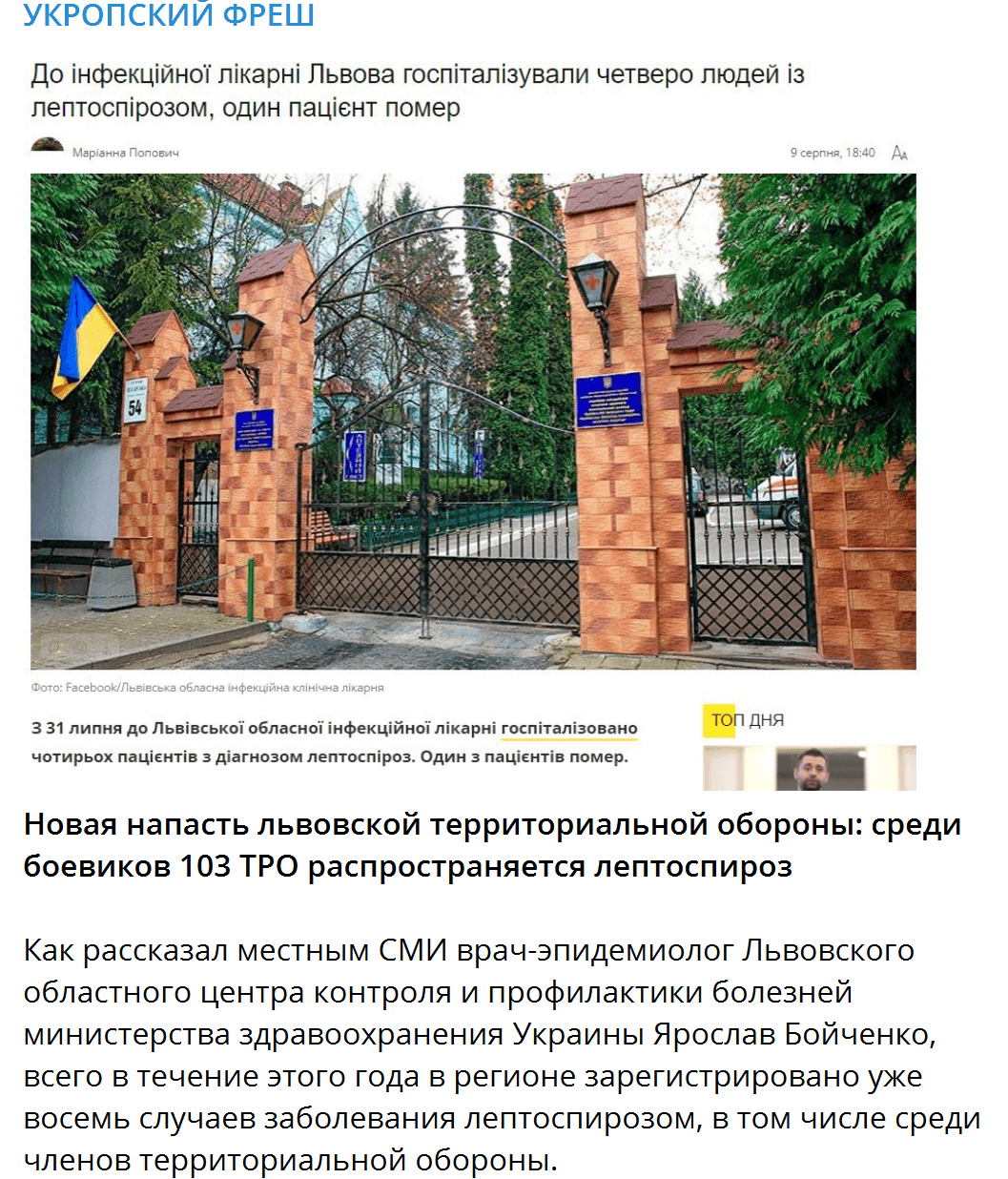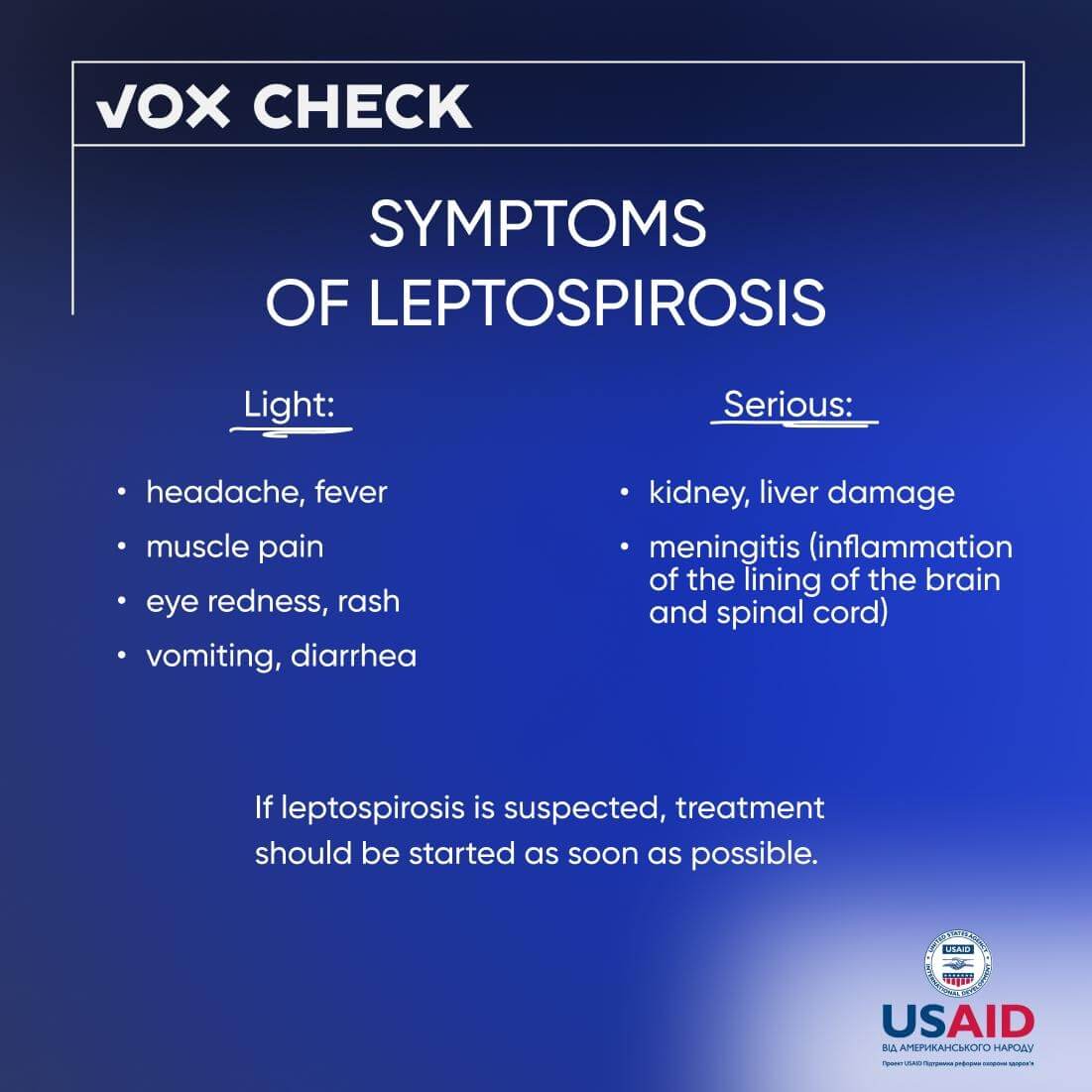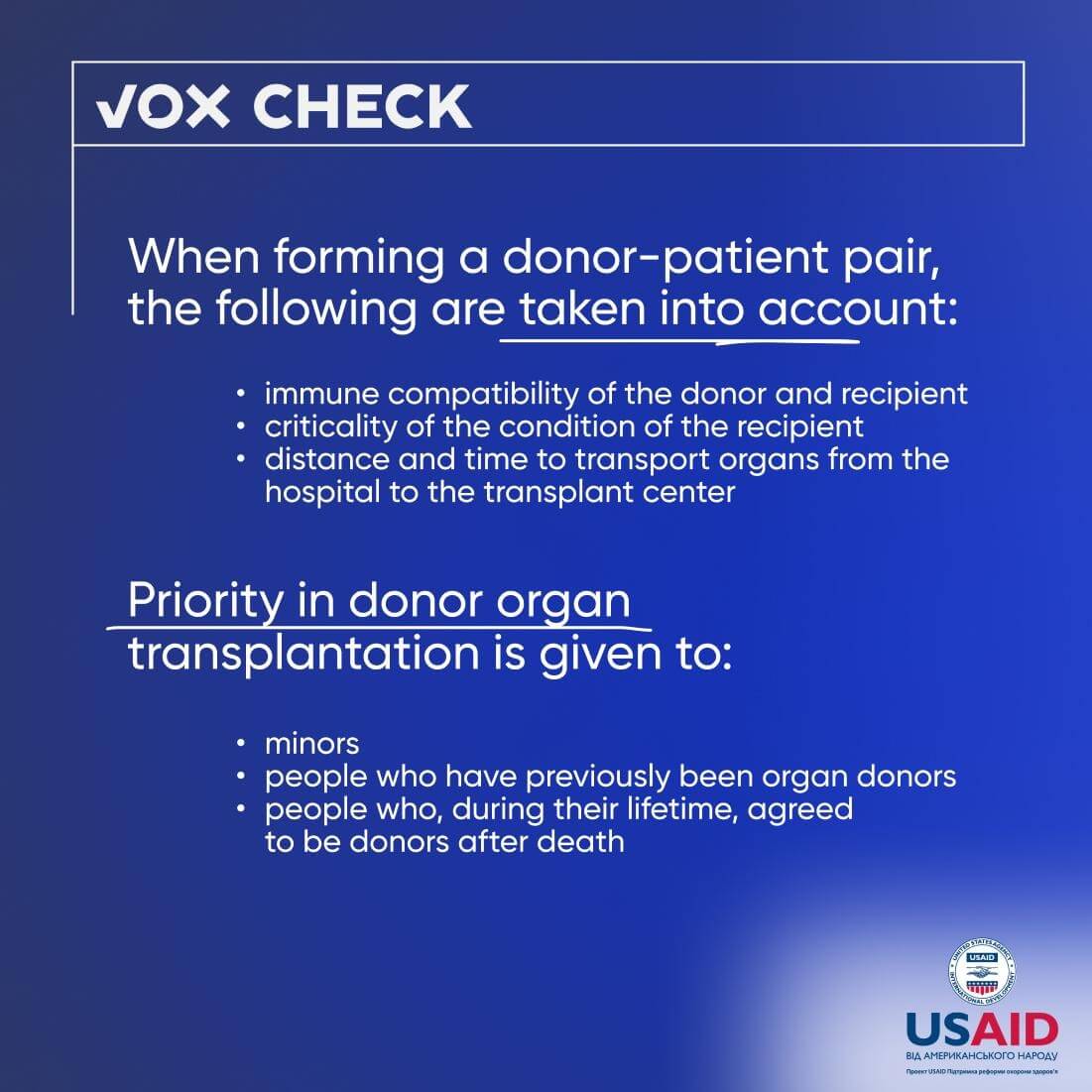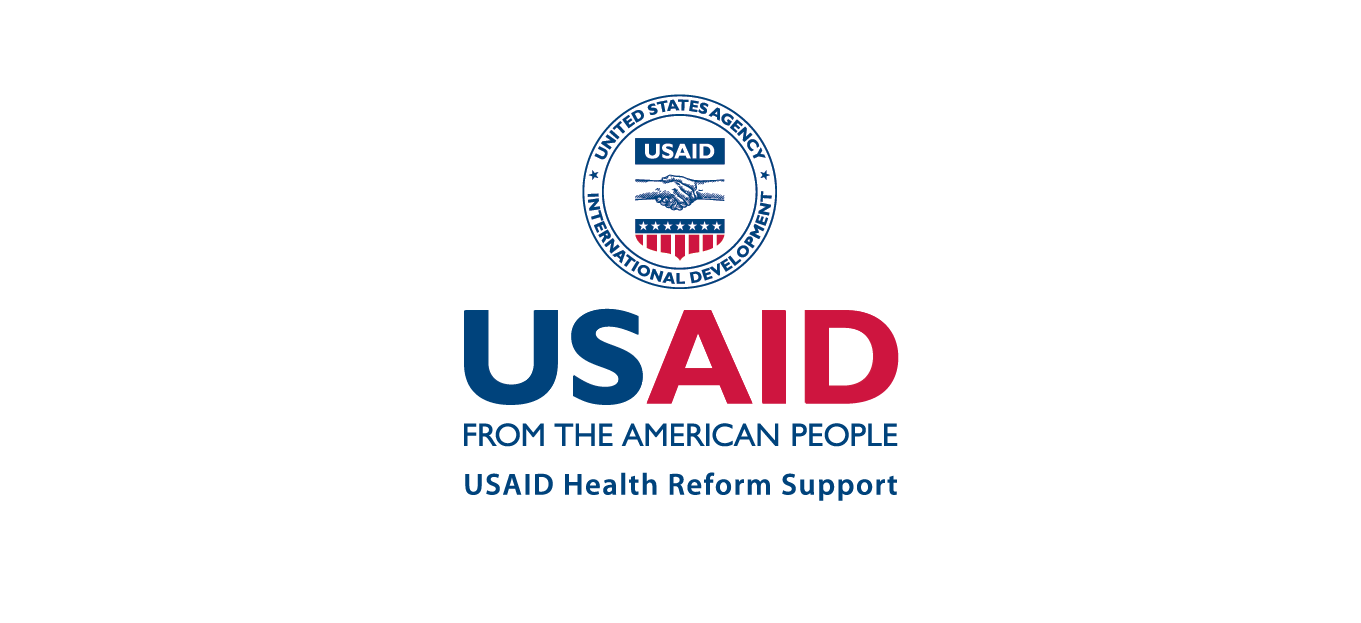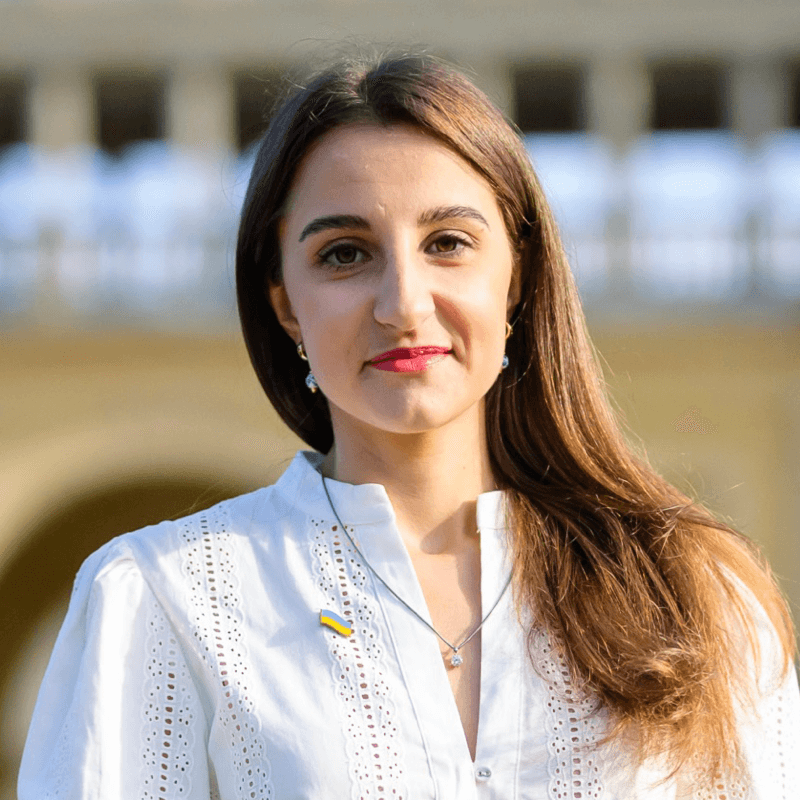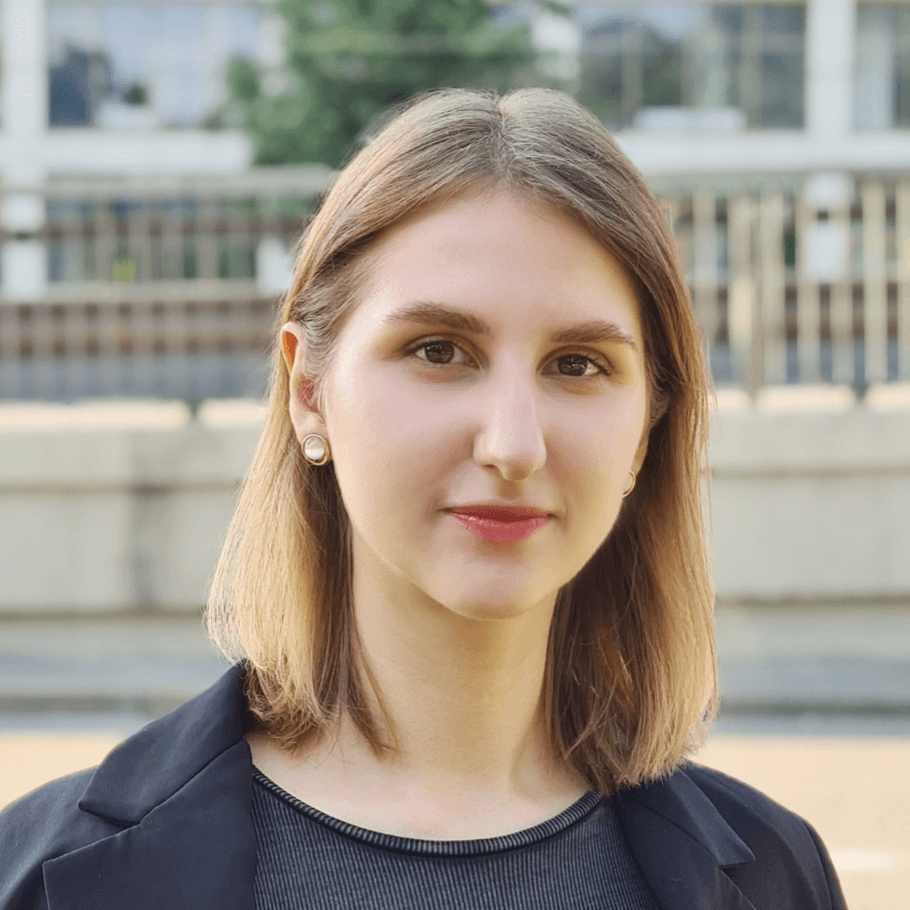In this issue, we debunked information that allegedly “black transplantologists” are taking advantage of gaps in Ukrainian legislation, feeling so at ease that they’ve started placing advertisements on Ukrainian job search websites. Another fake concerned the 103rd Separate Brigade of the Territorial Defense of the Ukrainian Armed Forces, about which Russians intentionally spread numerous fakes over the past few months. This time, they claimed that there are cases of leptospirosis among the brigade’s soldiers.
With the support of the USAID Health Reform Support project, VoxCheck analyzes and refutes public health narratives spread in the information space of Ukraine, Belarus, and russia on a weekly basis.
Disinformation: Leptospirosis is spreading among the soldiers of the 103rd brigade of the Territorial Defense of the Armed Forces of Ukraine
Messages are circulating online that claim epidemiologist Yaroslav Boichenko informed Ukrainian media about 8 cases of leptospirosis in the Lviv region. The disease has allegedly also spread among the soldiers of the 103rd Separate Brigade of the Territorial Defense of the Ukrainian Armed Forces.
Screenshot ot the post
What’s the reality?
Since July 2023, Russian media and Telegram channels have launched a wave of disinformation about the 103rd Separate Brigade of the Territorial Defense of the Ukrainian Armed Forces. Initially, propagandists claimed that the soldiers were stationed in the rear and not on the front lines. Later, they reported that the spread of Hepatitis B in Lviv was allegedly due to a soldier from the 103rd brigade. In previous issues, we also debunked the alleged death of a soldier from the 103rd brigade at the hands of so-called “black transplantologists.”
This time, Russians are spreading a screenshot from an article by “Suspilne” that discusses four patients hospitalized at the Lviv Regional Infectious Hospital with a diagnosis of leptospirosis. Additionally, epidemiologist Yaroslav Boichenko from the Lviv Regional Center for Disease Control and Prevention of the Ministry of Health of Ukraine mentioned that 8 cases of the disease were recorded in the Lviv region during 2023. However, the article makes no mention of soldiers, particularly from the 103rd Separate Brigade. Other materials also lack information about infections among servicemen.
As of August 21, 2023, there are 8 patients being treated for leptospirosis at the Lviv Regional Infectious Hospital. Most of the patients are residents of the Stryi district, Drohobych, and Morshyn. From the descriptions of patients in Ukrainian media, it is evident that these are civilians, not military personnel: they contracted the disease after swimming in contaminated water or while cleaning basements or other utility spaces without protective gear.
Leptospirosis is an infectious disease caused by infected animals, primarily rodents, insectivores, domestic animals, dogs, and industrial animals (such as foxes). The disease is not transmitted from person to person. Infection can occur during activities like swimming, fishing, or breeding fish in contaminated water bodies, haymaking in moist areas, caring for sick and infected animals, and more. The infection enters the human body through cracks, cuts, wounds on the skin, or mucous membranes (eyes, nose, mouth).
Source: Public Health Center of the Ministry of Health of Ukraine
According to the latest data from the Public Health Center, during the first half of 2023, Ukraine recorded 41 cases of leptospirosis, compared to 32 cases for the same period in 2022. In total, there were 141 cases registered last year. The incidence of the disease tends to increase mainly in the spring and summer, when people spend more time near water.
Disinformation: In Ukraine, job vacancies for “black transplantologists” are being posted on job search websites
A screenshot is circulating on the internet from a Ukrainian job search website called Jooble, which shows that the Center for Innovative Medical Technologies (CIMT) of the National Academy of Sciences of Ukraine is seeking a “special medical worker.” It further specifies that they need a surgeon with experience in “specific fields” who will perform duties anonymously and not disclose details. The employers offer a 3-month contract with a salary of 250,000 to 300,000 UAH.
The creators of the advertisement claim that this is how “black transplantologists” are recruiting employees. They mention that allegedly, in Ukraine, the conditions for their activities have been greatly simplified: individuals who commit to burying the deceased are allowed to grant permission for organ extraction. According to the authors, this permission can be given by the chief physician or the leader of a military unit. They also state that legislators have allowed transplantation operations not only in state clinics but also in private ones.
Screenshot of the image that was shared on the network
What’s the reality?
We were unable to find this advertisement on the Jooble website. Furthermore, the message about searching for a “special medical worker” from CIMT was not posted on other job search websites or on the institution’s Facebook page. The medical facility’s website provides a list of current vacancies. At the time of writing the article, the list did not include the profession of a surgeon. CIMT also emphasized that they only publish their job listings on their official website and do not duplicate them on other platforms.
Experts from CIMT work at a hospital for employees of the National Academy of Sciences of Ukraine, prioritizing their care. The center does not have a transplantation department and is not involved in the Ministry of Health of Ukraine’s pilot project to change the mechanism of financing transplantation operations, which started in 2018. As part of this initiative, the state commits to fully cover the cost of transplantation operations using anatomical materials. As of August 2023, 44 medical institutions have joined the project.
Furthermore, the notion that Ukrainian legislation supports the activities of “black transplantologists” is untrue. In Ukraine, there is a presumption of non-consent for post-mortem organ removal, meaning transplantation can only be performed with written consent.
In 2021, the Verkhovna Rada made some changes regarding organ transplantation. Accordingly, if during their lifetime, a person did not express consent or refusal for transplantation, their spouse, husband, close relatives (children, parents, siblings), or a person who has committed to bury the deceased can provide that consent. All data about the deceased and the person who provided consent for organ retrieval are recorded in the Unified State Information System for Organ and Tissue Transplantation.
Subsequently, the donor-recipient pairing is also determined by a system based on a wide range of biological indicators, the urgency of the situation, and considering the optimal time for transporting the deceased’s organ from one medical facility to the hospital where the patient is located. In other words, the authorized person who provided consent for transplantation cannot influence who will receive the organ.
Source: Ukrainian Transplant Coordination Center
Moreover, private clinics had permission to conduct transplants until 2019. However, in that year, changes were made to the law that simplified the process of obtaining a license for conducting transplants for both public and private medical institutions. Previously, a medical institution had to meet criteria set by the Cabinet of Ministers and obtain approval from the relevant executive authority. Under the new law, this matter is now solely determined by the licensing department of the Ministry of Health of Ukraine.
This information piece was produced with the assistance of the United States Agency for International Development (USAID), provided on behalf of the people of the United States of America. This article’s content, which does not necessarily reflect the views of USAID, the United States Government, is the sole responsibility of Deloitte Consulting under contract #72012118C00001.
Attention
The authors do not work for, consult to, own shares in or receive funding from any company or organization that would benefit from this article, and have no relevant affiliations
